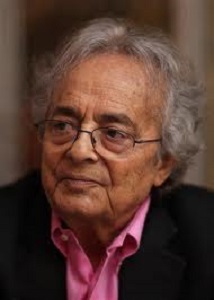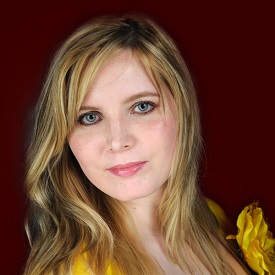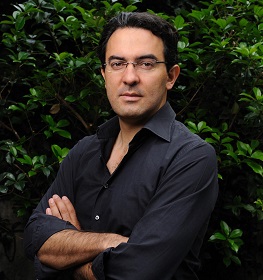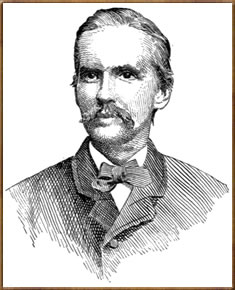De Syrische schrijver Adonis (pseudoniem van Ali Ahmad Sa’id) werd geboren op 1 januari 1930 in Qassabin in het noorden van Syrië. Zie ook alle tags voor Adonis op dit blog.
Celebrating Childhood
Even the wind wants
to become a cart
pulled by butterflies.
I remember madness
leaning for the first time
on the mind’s pillow.
I was talking to my body then
and my body was an idea
I wrote in red.
Red is the sun’s most beautiful throne
and all the other colors
worship on red rugs.
Night is another candle.
In every branch, an arm,
a message carried in space
echoed by the body of the wind.
The sun insists on dressing itself in fog
when it meets me:
Am I being scolded by the light?
Oh, my past days—
they used to walk in their sleep
and I used to lean on them.
Love and dreams are two parentheses.
Between them I place my body
and discover the world.
Many times
I saw the air fly with two grass feet
and the road dance with feet made of air.
My wishes are flowers
staining my days.
I was wounded early,
and early I learned
that wounds made me.
I still follow the child
who still walks inside me.
Now he stands at a staircase made of light
searching for a corner to rest in
and to read the face of night again.
If the moon were a house,
my feet would refuse to touch its doorstep.
They are taken by dust
carrying me to the air of seasons.
I walk,
one hand in the air,
the other caressing tresses
that I imagine.
A star is also
a pebble in the field of space.
He alone
who is joined to the horizon
can build new roads.
A moon, an old man,
his seat is night
and light is his walking stick.
What shall I say to the body I abandoned
in the rubble of the house
in which I was born?
No one can narrate my childhood
except those stars that flicker above it
and that leave footprints
on the evening’s path.
My childhood is still
being born in the palms of a light
whose name I do not know
and who names me.
Out of that river he made a mirror
and asked it about his sorrow.
He made rain out of his grief
and imitated the clouds.
Your childhood is a village.
You will never cross its boundaries
no matter how far you go.
His days are lakes,
his memories floating bodies.
You who are descending
from the mountains of the past,
how can you climb them again,
and why?
Time is a door
I cannot open.
My magic is worn,
my chants asleep.
I was born in a village,
small and secretive like a womb.
I never left it.
I love the ocean not the shores.
Vertaald door Khaled Mattawa

Adonis (Qassabin, 1 januari 1930)
De Deense schrijver Jonas T. Bengtsson werd geboren op 1 januari 1976 in Kopenhagen. Zie ook alle tags voor Jonas T. Bengtsson op dit blog.
Uit: Aminas Briefe (Vertaald door Günther Frauenlob)
„Ich steige vom Bett und gehe zu der Reihe Briefe, die unmittelbar vor dem Fenster liegt. Sie stammen aus dem ersten Sommer, in dem wir uns geschrieben haben. Ich hebe einen vom Boden auf und beginne irgendwo.
Ich hoffe, es geht Dir gut – na ja, gut, so toll läuft es gerade nicht, aber Du kapierst schon, wie ich das meine. Sie haben Dich doch wohl nicht wieder in diese Zwangsjacke gesteckt? Ich weiß, dass das nicht lustig ist, dass ich keine Ahnung habe, wie man sich darin fühlt, aber trotzdem musste ich laut lachen, als ich Deinen Brief las. Meine Schwester steckte ihren Kopf ins Zimmer und fragte, was los sei, weil ich so lachte. Ich finde es unglaublich, wie Du darüber schreiben kannst. Ich musste ihr von den Briefen erzählen. Am Anfang habe ich noch gesagt, meine Freundin Sofie hätte mir geschrieben, aber das hat sie mir nicht abgekauft. Sie hat mich richtig ausgefragt. Heh, du, wer soll denn Sofie sein? Ich kenne keine Sofie. Und warum ruft diese Sofie nie an, warum bringst du sie nicht mal mit nach Hause? Diese Sofie hat doch wohl keinen cük (das ist das türkische Wort für etwas, das Männer haben) … Dann musste ich ihr von Dir erzählen, beziehungsweise von unseren Briefen. Weißt Du, was sie gesagt hat? Du bist keine Dänin, vergiss das nicht, du bist keine Dänin, und dann hat sie die Augenbrauen hochgezogen und sah genauso aus wie unsere Mutter. Aber sie ist in Ordnung, sie wird niemandem etwas sagen. Außerdem glaube ich, dass sie ein bisschen neidisch ist. Sie würde auch gern jemandem schreiben. Ansonsten war es in letzter Zeit nicht gerade lustig. Ich hatte ja gehofft, Dir diesen Brief hier aus einem Liegestuhl am Schwarzen Meer schreiben zu können. Aber mein Vater hat noch immer keine Arbeit gefunden, und so mussten wir den Urlaub ausfallen lassen. Er ist ziemlich verbittert, und ich verstehe ihn gut, er hat fast zehn Jahre in diesem Lager für Computerteile gearbeitet, und dann verlegen die es einfach nach Schweden.

Jonas T. Bengtsson (Kopenhagen, 1 januari 1976)
De Nederlandse schrijfster Chantal van Gastel werd geboren op 1 januari 1980 in Breda. Zie ook alle tags voor Chantal van Gastel op dit blog.
Uit:Ik wist het
“Het voelt alsof ik weer een klein meisje ben als ik door de vervuilde ramen van het winkelpand naar binnen kijk. De oude toonbank staat nog achteraan in de hoek. Spinnenwebben hinderen het zicht, maar in mijn gedachten zie ik de winkel voor me zoals die vroeger was. Eén grote explosie van kleur door de rijen emmers met bloemen, de houten balken aan het plafond, het mozaïek in de tegelvloer (zou dat er nog zijn?) en de statige oude kassa met een lade die rinkelde als die openging.
Maar ik ben niet klein meer. Ik ben een geslaagde zakenvrouw, althans daar heb ik de bank door een goed bedrijfsplan van kunnen overtuigen, en nu wacht ik op de makelaar met wie ik dit pand ga bezichtigen. Een vrouw met een bril en opgestoken haar, gekleed in een grijs krijtstreeppakje met een kleurige blouse onder haar jasje, komt op haar hoge hakken over de hobbelige kinderkopjes van het stadsplein aanstormen.
‘Sorry dat ik te laat ben, ik miste de tram en besloot toen maar de bedrijfsauto te nemen, maar het verkeer was een nachtmerrie…’
Met een lange zucht ademt ze uit. ‘Hoe dan ook, het spijt me. Ik hoop dat je niet te lang hebt hoeven wachten.’ Ik wil antwoorden dat ik dat niet erg vind, maar ze is op dreef en wacht niet op mijn antwoord.”

Chantal van Gastel (Breda, 1 januari 1980)
De Colombiaanse schrijver Juan Gabriel Vásquez werd geboren in Bogotá op 1 januari 1973. Zie ook alle tags voor Juan Gabriel Vásquez op dit blog.
Uit: The Sound of Things Falling (Vertaald door Anne McLean)
“While in the press and on the TV screens the authorities listed the diseases that could be spread by an artiodactyl — and they used that word: artiodactyl, new to me — and in the rich neighborhoods of Bogota people wore T‑shirts saying Save the Hippos, in my apartment, on long drizzly nights, or walking down the street toward the city center, I began to think stubbornly about the day Ricardo Laverde died, and even to force myself to remember the precise details. I was surprised by how little effort it took me to summon up the words I had spoken or heard, things I’d seen, pain I’d suffered and now overcome; I was also surprised by the alacrity and dedication we devote to the damaging exercise of remembering, which after all brings nothing good and serves only to hinder our normal functioning, like those bags of sand athletes tie around their calves for training. Bit by bit I began to notice, not without some astonishment, that the death of that hippopotamus put an end to an episode of my life that had begun quite a while ago, more or less like someone coming back home to close a door carelessly left open.
And that’s how this story got under way. I don’t know what good it does us to remember, what benefits or possible penalties it brings, or how what we’ve lived through can change when we remember it, but remembering Ricardo Laverde well has become an urgent matter for me. I read somewhere that a man should tell the story of his life at the age of forty, and this deadline is fast approaching: as I write these lines, only a few short weeks remain before this ominous birthday arrives. The story of his life. No, I won’t tell my life story, just a few days of it that happened a long time ago, and I’ll do so fully aware that this story, as they warn in fairy tales, has happened before and will happen again.”

Juan Gabriel Vásquez (Bogotá, 1 januari 1973)
De Amerikaanse dichter Paul Hamilton Hayne werd geboren in Charleston, South Carolina, op 1 januari 1830. Zie ook alle tags voor Paul Hamilton Hayne op dit blog.
At Last
In youth, when blood was warm and fancy high,
I mocked at death. How many a quaint conceit
I wove about his veiled head and feet,
Vaunting aloud, Why need we dread to die?
But now, enthralled by deep solemnity,
Death’s pale phantasmal shade I darkly greet:
Ghostlike it haunts the hearth, it haunts the street,
Or drearier makes drear midnight’s mystery.
Ah, soul-perplexing vision! oft I deem
That antique myth is true which pictured death
A masked and hideous form all shrank to see;
But at the last slow ebb of mortal breath,
Death, his mask melting like a nightmare dream,
Smiled,—heaven’s high-priest of Immortality!
The winter winds may wildly rave
The winter winds may wildly rave,
How wildly o’er thy place of rest!
But, love! thou hast a holier grave
Deep in a faithful human breast.
There, the embalmer, Memory, bends,
Watching, with softly-breathed sighs,
The mystic light her genius lends
To fadeless cheeks and tender eyes.
There in a fathomless calm, serene,
Thy beauty keeps its saintly trace,
The radiance of an angel mien,
The rapture of a heavenly grace.
And there, O gentlest love! remain
(No stormy passion round thee raves),
Till, soul to soul, we meet again.
Beyond this ghostly realm of graves.

Paul Hamilton Hayne (1 januari 1830 – 6 juli 1886)
Zie voor nog meer schrijvers van de 1e januari ook mijn vorige blog van vandaag.
